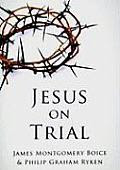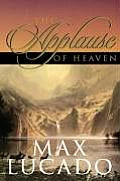 There is wishful thinking in Hell as well as on Earth. C. S. LEWIS (The Screwtape Letters)
There is wishful thinking in Hell as well as on Earth. C. S. LEWIS (The Screwtape Letters)For the past week, I've been digging materials from my sleek bookshelf for some serious posts on theology. Then, out of the blue, a quotation of C.S. Lewis on hell caught my attention:
Indeed the safest road to Hell is the gradual one---the gentle slope, soft underfoot, without sudden turnings, without milestones, without signposts. (The Screwtape Letters)
And then on my way home from a field assignment northeast of Laguna, I encountered a preacher inside a passenger jeep. He shared the gospel briefly and the centerpiece of it is Hell. So I said, What the heck! Why not start on a "helly" note.
Introduction
The authors of the Scripture made no trivial declaration when they talk about hell. Language cannot describe the severity of divine punishment from an offended God. [It is certain that by such modes of expression the Holy Spirit designed to impress all our senses with dread-John Calvin, Institutes]
John Piper put it another way:
The infinite horrors of hell are intended by God to be a vivid demonstration of the infinite value of the glory of God.(Let the Nations be Glad)
Historic Biblical View of Hell
Illustrated poetically in Isaiah 30:33,
For Tophet was established of old,
Yes, for the king it is prepared.
He has made it deep and large;
Its pyre is fire with much wood;
The breath of the Lord, like a
stream of brimstone,
Kindles it.
Hell itself was originally prepared for the devil and his angels,not for humans (Matt 2541).
No one at the present is in hell, i.e. the final hell. (Rev 20:10).
Hades, equivalent to the OT Sheol is the place of the wicked prior to the final judgment in hell (Luke 16:23).
Between Christ's death and resurrection, His living spirit descended to the bottomless pit and proclaimed triumph over the demons bound there. (1Pet.3:19/2Pet.2:4)
The Anti-Christ and his winsome prophet will be the first to arrive in the dreadful place after their defeat and capture in the Battle of Armageddon (Rev 19:20/20:10).
At the end of the Millennial Kingdom, Satan will be released from the bottomless pit-gather all the army of rebels worldwide and stage a final uprising – (The Last Battle)against the saints in the "beloved city" of Jerusalem. "And fire came down from heaven and devoured them. The devil…was cast into the like of fire…"(Rev 209b-10a)
The Great White Throne Judgment will follow and "…anyone not found written in the Book of Life was cast into the lake of fire" (Rev 20:15)
Some Insights and Footnotes
*Hell is a place of eternal punishment for Satan, fallen angels, and unredeemed men and not an event of annihilation (2 Thes 1:9). Currently, John R.W. Stott is the most popular advocate of the false doctrine of annihilationism. Revelation 20:10 refutes this view.
*There is no purgation of the wicked in temporary hell (the concept of purgatory is not supported by Scripture) much more in the final hell. Their hands are full –there's nowhere for God to place His forgiveness. From the very beginning, men prefer darkness to light and God will allow their sin to run its inevitable course there. The lost soul is eternally fixed in its diabolical attitude. C.S. Lewis said wittingly, '...that the damned are, in one sense, successful, rebels to the end; that the doors of hell are locked on the inside…They enjoy forever the horrible freedom they have demanded, and are therefore self-enslaved: just as the blessed, forever submitting to obedience, become through all eternity more and more free.' (The Problem of the Pain)
*The depiction-'Lake of Fire' indicates that there are degrees of punishment in hell-the core would be hotter than the 'shore'. The line "And they were judged, …according to their works" from Revelation 20:12 implies this.
*Those who go to hell, go because they have rejected the only remedy, Jesus Christ, not because they were created for hell. God has no pleasure in the death of the wicked (Ezek.33:11), He must judge wickedness because His holiness requires it (2Thess.1:7-9). Even hell will acknowledge the perfect justice of God (Psalm 76:10); those who are there will know that their punishment is just and that they alone are to blame.(Deut. 32-3-5)[This important insights were taken from The MacArthur Study Bible] From the standpoint of the redeemed , the punishment of the wicked is an act of unspeakable mercy.(A.W.Pink, The Attributes of God)
* Hell is also a proof of God's boundless mercy. As John Calvin says somewhere that the wicked deserved to be utterly destroyed but 'by the admirable counsel of God, an intermediate state was prepared' as 'a light punishment' to them. Even in their final destination, God showed mercy by just plunging them into abysses and whirpools than endure the terrors for a moment. (Institutes)
No one at the present is in hell, i.e. the final hell. (Rev 20:10).
Hades, equivalent to the OT Sheol is the place of the wicked prior to the final judgment in hell (Luke 16:23).
Between Christ's death and resurrection, His living spirit descended to the bottomless pit and proclaimed triumph over the demons bound there. (1Pet.3:19/2Pet.2:4)
The Anti-Christ and his winsome prophet will be the first to arrive in the dreadful place after their defeat and capture in the Battle of Armageddon (Rev 19:20/20:10).
At the end of the Millennial Kingdom, Satan will be released from the bottomless pit-gather all the army of rebels worldwide and stage a final uprising – (The Last Battle)against the saints in the "beloved city" of Jerusalem. "And fire came down from heaven and devoured them. The devil…was cast into the like of fire…"(Rev 209b-10a)
The Great White Throne Judgment will follow and "…anyone not found written in the Book of Life was cast into the lake of fire" (Rev 20:15)
Some Insights and Footnotes
*Hell is a place of eternal punishment for Satan, fallen angels, and unredeemed men and not an event of annihilation (2 Thes 1:9). Currently, John R.W. Stott is the most popular advocate of the false doctrine of annihilationism. Revelation 20:10 refutes this view.
*There is no purgation of the wicked in temporary hell (the concept of purgatory is not supported by Scripture) much more in the final hell. Their hands are full –there's nowhere for God to place His forgiveness. From the very beginning, men prefer darkness to light and God will allow their sin to run its inevitable course there. The lost soul is eternally fixed in its diabolical attitude. C.S. Lewis said wittingly, '...that the damned are, in one sense, successful, rebels to the end; that the doors of hell are locked on the inside…They enjoy forever the horrible freedom they have demanded, and are therefore self-enslaved: just as the blessed, forever submitting to obedience, become through all eternity more and more free.' (The Problem of the Pain)
*The depiction-'Lake of Fire' indicates that there are degrees of punishment in hell-the core would be hotter than the 'shore'. The line "And they were judged, …according to their works" from Revelation 20:12 implies this.
*Those who go to hell, go because they have rejected the only remedy, Jesus Christ, not because they were created for hell. God has no pleasure in the death of the wicked (Ezek.33:11), He must judge wickedness because His holiness requires it (2Thess.1:7-9). Even hell will acknowledge the perfect justice of God (Psalm 76:10); those who are there will know that their punishment is just and that they alone are to blame.(Deut. 32-3-5)[This important insights were taken from The MacArthur Study Bible] From the standpoint of the redeemed , the punishment of the wicked is an act of unspeakable mercy.(A.W.Pink, The Attributes of God)
* Hell is also a proof of God's boundless mercy. As John Calvin says somewhere that the wicked deserved to be utterly destroyed but 'by the admirable counsel of God, an intermediate state was prepared' as 'a light punishment' to them. Even in their final destination, God showed mercy by just plunging them into abysses and whirpools than endure the terrors for a moment. (Institutes)
*Babies--and anyone else who has not reached the condition of accountability--go to heaven when they die.(2 Samuel 12:23; Mark. 10:14; Matt. 19:14)
Conclusion
Hell is hell. It is a detestable doctrine yet is to be contemplated.Does it kindle in us some taste of 'sweetness'? Let me quote again C.S. Lewis for the last time (here):
In the long run the answer to all those who object to the doctrine of hell, is itself a question:'What are you asking God to do?' To wipe out their sins and, at all costs, to give them a fresh start, smoothing every difficulty and offering every miraculous help? But He has done so, on Calvary. To forgive them? They will not be forgiven. To leave them alone? Alas, I am afraid that is what He does.' (The Problem of the Pain)
I pray that when the wicked has burned, you would say that it's all about love.






































No comments:
Post a Comment